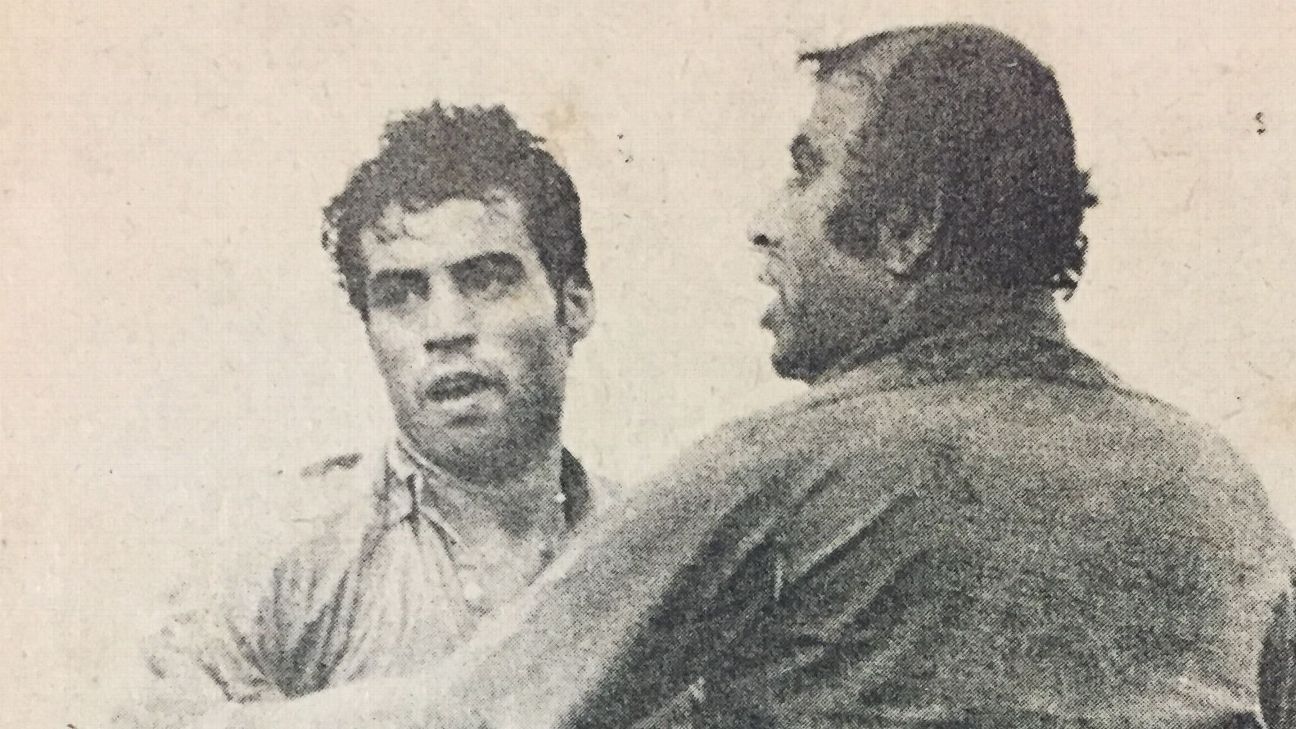Where does one begin while describing the greatness of Pradip Kumar Banerjee, PK for most?
Does one talk of his five decades in football, from his debut for Bihar in the Santosh Trophy at age 16 in 1952 to a stint as Mohammedan Sporting coach 51 years later?
Perhaps one could bring up his brightest moments with the Indian national team, a fourth place finish at the 1956 Melbourne Olympics, where India beat Australia 4-1, or scoring in all but one game as India regained the Asian Games gold in 1962.
Maybe one could point to his record as coach — his 54 trophies as coach of club and country are the most for an Indian, 13 more than the late Amal Dutta who comes in second place.
That half-century includes both the Pesta Sukan Cup in Singapore in 1971 with India, as well as the Calcutta Football League (CFL) second division title with unfancied Bata in 1969, not long after having obtained his coaching license in Japan.
The one-club colossus
One of PK’s greatest achievements was that he remained loyal to unfancied Eastern Railway in Kolkata for 13 straight seasons starting from 1955. His team even won the Calcutta Football League in 1958, an achievement akin to Leicester’s Premier League triumph in 2015-16. For context, since independence, that is the only CFL title that did not go to Mohun Bagan, East Bengal or Mohammedan Sporting.
Former India striker Biswajit Bhattacharya, who himself has had CFL title wins with East Bengal, believes PK’s excellence as a player made him an ideal coach. “He was a gentle stalwart. He could break down complex things into very simple terms,” says Bhattacharya, whose made his India debut as a teenager in 1981 when PK was India coach. “When I met him for the first time at the national camp in Mumbai, he immediately struck me as a father figure. You could talk to him about anything under the sun, and come away wiser.”
Bhattacharya says PK’s inputs as coach in the 1970s were similar to what many foreigners, such as erstwhile Yugoslavia’s Milovan Ciric, advocated in the following decade, “If he ever substituted you or didn’t start you, he would explain exactly why. This is contextual, because when we became coaches, we realised that you had to explain to someone why you were benching them. You had to make it clear what you expect from your players, and why they were falling short. It also helps maintain a transparent and healthy relationship between player and coach.”
‘Father, teacher, friend’
Of PK’s coaching achievements, his quintuple of 1972 with East Bengal stands out. The club were unbeaten that season, and conceded just four goals as they won the CFL, the IFA Shield, the Durand Cup, the Bordoloi Trophy, and shared the Rovers Cup in Mumbai. PK’s tactical acumen brought East Bengal victories against North Korean clubs Pyongyang City and Dok Ro Gang, helping them win the IFA Shield in Kolkata and the DCM Trophy in Delhi in 1973. He also masterminded East Bengal’s 5-0 Kolkata derby win in the IFA Shield final of 1975, against a Bagan team that included his younger brother and future India international Prasun Banerjee.
His devotion to Kolkata football wasn’t one-sided, though. He also won 23 trophies as Mohun Bagan coach, and even played a few matches on loan for Bagan in the 1950s.
Bhattacharya remembers the club-country debate threatening to split the Indian team ahead of the 1982 Asian Games. “I had just entered Mohun Bagan, and I was among the highest-paid players because I had just broken into senior football then,” he remembers. “I was going to get paid 3,500 rupees [about $370 according to the exchange rate then] and playing the Asian Games would mean my club payment would go down to less than half.”
PK convinced Bhattacharya to play for India, and the latter ended up playing both the Asian Games that year and four years later in Seoul. “If you did well, he invited you home for lunch. If you were naughty, he would take you aside for a quiet chat. “We learnt from him that a coach has to be many things for a player — a father, a teacher, or a friend — depending on the situation.”
One of India’s greatest ever
PK’s biggest legacy should still stand as a player, particularly in internationals. He scored five of his 19 goals in his debut tournament, spearheading India to the title at the Dhaka quadrangular in 1955. His six goals at the Asian Games are the most by an Indian, and include his last in the India blue during the 1966 edition.
Football historian Gautam Roy points out that India’s best phase of international football came as the 60s began, with coach Syed Abdul Rahim’s trademark 4-2-4 system employing PK on the right, and Chuni Goswami and Tulsidas Balaram alongside him in attack. PK would cut in from the wings, and unleash a powerful right-footed shot, an ability that allowed Rahim to employ him as India’s first inverted winger.
When PK, Chuni and Balaram played together, India won 12 of 16 internationals, and the high point of that partnership came with the 1962 Asian Games gold. Balaram’s career was curtailed by pleurisy, and PK broke his leg during a training camp for the Olympic qualifiers in 1963. Rahim died not long after, and India finished second at the AFC Asian Cup of 1964.
Without PK alongside him, Chuni found goals more difficult to come by, and India failed to qualify for the Olympics for the first time since independence in 1964, and haven’t been back at that stage since.
Among AFC nations, only Iraq, Japan and South Korea have more Olympics appearances than India, but Indian football was never to be the same again.
In many ways, neither was PK the player, but he more than made up with technical expertise as coach.
